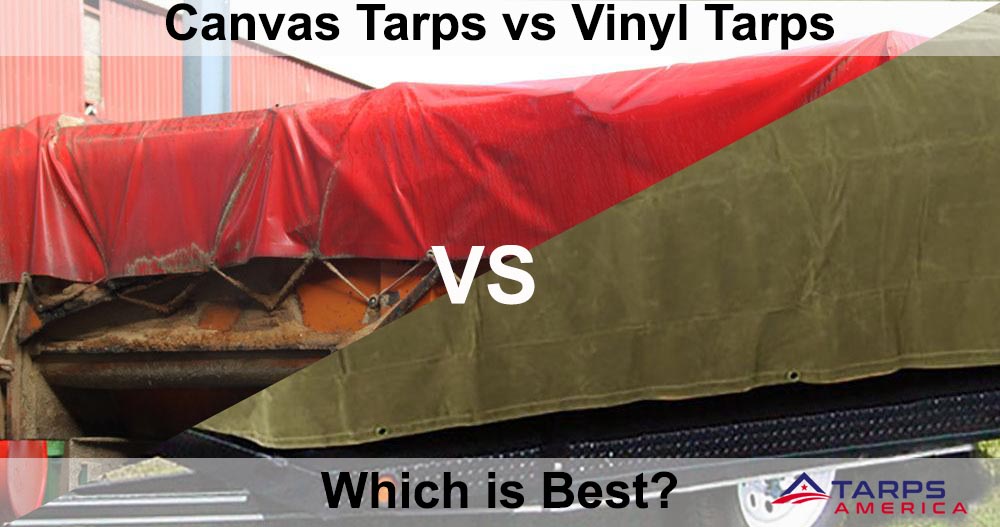If you have essential equipment or materials that need protection from the weather, a high-quality tarp is required. However, choosing a suitable material can get tricky, especially when considering its value for the money spent. It must be resistant to wind and rain, strong to resist wear and tear.
So, which material is perfect to suit your needs? We’ve rounded up two of the most in-demand tarp materials: canvas and vinyl. Let’s discuss how they differ, their key features, and which of them will work best for you.
What is a Canvas Tarp?
A canvas tarp is made of cotton and treated to resist water, mildew, and fire if required. This combination is what makes it ideal if you’re looking to protect your valuables outdoors. Its main characteristics are that it’s breathable and can withstand high temperatures.Since canvas tarps are breathable, it covers material that needs to allow moisture to escape. Canvas tarps also cover construction machinery and equipment, protect surfaces and tools, or wrap hot pipes in a refinery.
Treated Canvas Tarps vs Untreated Canvas Tarps
Canvas tarps are treated with chemicals to make them mildew, water, and, when required, fire-resistant.
Natural and untreated canvas tarps, on the other hand, offer a more porous surface that’s highly absorbent.
What are Vinyl Tarps?
Vinyl tarps are made out of synthetic materials and are used in various applications that require durability.
Vinyl tarps are ideal if you're looking for a waterproof cover that can protect your valuables from the most extreme conditions. They are most commonly used as a cover for truck beds, construction machinery, and other equipment where waterproof is required. They are also known for being high-quality, not only for professional uses but also for personal use.
Canvas Tarps vs Vinyl Tarps: Features to Consider
-
Texture and Appearance
- Durability
The material's durability is another significant factor to consider when selecting a tarp. Both canvas and vinyl tarps are durable.
However, the material composition comes into play when talking about how long it can last. Canvas is made of cotton, a natural fiber, which may shrink when exposed to the elements.
Vinyl is made with PVC (polyvinyl chloride), a plastic that remains flexible across a wide temperature range. It is reinforced with a polyester scrim making it strong and tear-resistant, making vinyl one of the most durable tarp materials available.
- Weather Resistance
Since tarps are generally used outdoors, it's crucial to know how the tarp can hold up against the weather and the environment. That said, a few features you can consider would be tear strength, abrasion resistance, and waterproofing. Canvas tarps are considered water-resistant, meaning if water pools on the tarp, it may seep through. Also, the sewn seams may allow water to seep through the tarp. Vinyl tarps can be welded together to make the waterproof.
- Fire Retardant
Both canvas and vinyl can be made with fire retardant additives.
- Waterproofing and Resistances
Do we need our tarps to be waterproof or water resistant? There are some uses for a tarp that only require the material to repel moisture from seepage. If the tarp you need must be waterproof, vinyl is the best material choice.
Waterproof refers to when the material is generally considered impermeable by liquid unless it is punctured, torn, or in any other way damaged. On the other hand, water resistance only refers to the ability of the material to withstand water penetration to some extent. Canvas is an example of a water-resistant material. This means that water can seep through the fabric over an extended time.
Conclusion
In summary, you need to consider all of your requirements in selecting a tarp. If you are dealing with high temperatures (above 250 degrees F), canvas is the best choice. If you require waterproofing, vinyl is your best choice.

